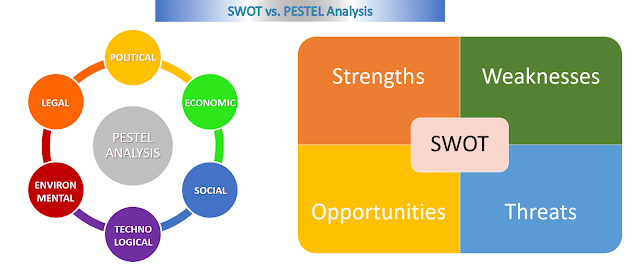What is SWOT Analysis?
SWOT Analysis is a survey of your organization's Strengths, Weaknesses, Opportunities and Threats. In this survey, you tend to brutally be honest, creative, thorough, and comprehensive while analyzing your organization as this will lead to a better business strategy.
This analysis is almost mandatory in every kind of business establishment, as we will indicate below, as it requires input from a diverse group of core business areas where all stakeholders can participate.
As an entrepreneur, you are required to understand this analysis thoroughly and use it effectively to pinpoint your awareness of all aspects of the study for your stakeholders. The analysis focus on internal and external forces that can affect your business in a way or another.
Key Questions to Ask When Developing Your SWOT Analysis
Strengths:
- What do we do exceptionally well?
- What advantages do we have?
- What valuable assets and resources do we have?
- What do customers/clients identify as our strengths?
Weaknesses:
- What could we do better?
- What are we criticized for or receive complaints about?
- Where are we vulnerable?
Opportunities:
- What opportunities do we know about, but we have not addressed?
- Are there emerging trends on which we can capitalize?
Threats:
- Are weaknesses likely to make us critically vulnerable?
- What external roadblocks exist that block our progress?
- Is there significant change coming in our sector?
- Are economic conditions affecting our financial viability?
What is PESTEL Analysis?
On a macro-environmental basis, an entrepreneur or a consultant needs to highlight all types of external forces that affects his business on a short and long term.
The PESTEL or PESTLE analysis refers to Political, Economical, Social, Technological, Legal, and Environmental factors around your organization. Here are the considerations that you need to think of when analyzing your macro-environment:
Political: Taxation, minimum wages, export incentives, government stability.
Economical: Capital, labor, land, entrepreneurship.
Social: Trends against unhealthy activities, wealth, demographic trends.
Technological: disruptive technology, obsolescence of technology.
Legal: laws and legislations, regulatory compliance, licensing, permits, tariffs, import/export requirements.
Environmental: Carbon footprint, compliance, ethics, corporate social responsibility.
Where to use them?
I've seen entrepreneurs and consultants include SWOT Analysis in almost every study they are developing. This includes but is not limited to:- Business Strategy/Model/Plan
- Feasibility Study
- Marketing Strategy/Plan
- Product Launch
- Business Expansion
- Mergers and Acquisitions
- Foreign Market Analysis
- Competitive Analysis
- New Partnerships
- and others
 |
| SWOT vs. PESTEL Analysis |
